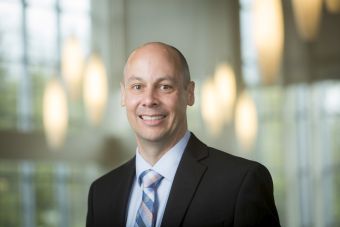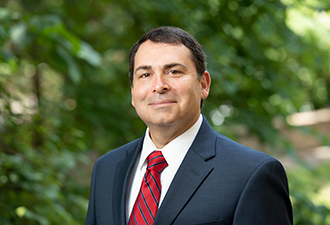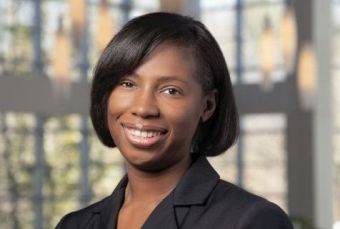Covid-19: Clinics and Pro Bono Projects
Faculty, students, and program leaders have been working to determine ways to offer clinical and pro bono services to those who need them, offering help with tax preparation, advance directives and wills, expunction of minor criminal charges, and more.
The Clemency Project

Jamie Lau, the supervising attorney for The Clemency Project, said that students have been reviewing files of those who may be eligible for clemency and have submitted one application for clemency during the quarantine. Students have been doing their work virtually and by practicing social distancing measures. They have also submitted a motion for appropriate relief to the district attorney asking that a person's sentence is reduced, which would, in effect, free that individual.
"There’s been a necessary slow down in the work, but it continues," Lau said. "Hopefully, in the future, we’ll be back at the school and there will be more cases. There aren’t a lack of cases of individuals who may be deserving."

Health Justice Clinic
One thing that the Health Justice Clinic does is help clients with advance directives and wills. Allison Rice, the director of the clinic, said that North Carolina just passed a law allowing remote video witnessing and notarization, which will allow the clinic to help clients remotely. However, since the process can be quite complicated, clinic staff and students are using social distancing and other precautions to sign and process documents.
First Amendment Clinic

Appellate Litigation Clinic

Children's Law Clinic

Volunteer Income Tax Assistance

Kim Burrucker, the director of the Office of Public Interest and Pro Bono, said that VITA has closed and has finished its work with clients. However, she has been in contact with former clients and with those who had appointments with VITA this year but could not keep them to let them know that the tax filing deadline has been extended to July 15, 2020. She has been communicating about stimulus checks, and she has been in preliminary discussions with the IRS about identifying new filing needs in response to tax implications from COVID-19. In addition, she has been talking with a student at the University of Cincinnati Law School about starting a VITA program there.
Burrucker also reports that Duke Law School may become one of only a few sites designated to handle more advanced returns that might come out of the financial and tax impacts of COVID-19.
Updated April 30
When the quarantine began, 90 people had appointments scheduled with the Volunteer Income Tax Assistance program. Program leaders had to cancel all of those appointments, as well as a clinic that was scheduled on March 22 to help international students complete their taxes. Approximately 500 international students were expected to attend that clinic or to be helped in some other manner through the clinic. All of those students were referred to online tax software to complete their own returns.
Students have continued to provide assistance to taxpayers through telephone calls and Zoom. Students report that they are able to help fewer people because it takes much longer to complete the return. Anna Ellement '20 says that a typical return would take about 20 minutes to complete; virtually, a return might take an hour and a half to complete. One reason is that students are often working over the phone, and they cannot see what is on the taxpayer's screen in order to provide guidance.
Though all people who had appointments scheduled when the quarantine began were offered telephone assistance, not all people accepted the offer. Last year, VITA processed 432 physical returns and helped students with more than 300 returns through tax parties. This year, they have helped 198 so far.
Kim Burrucker, director of the Office of Public Interest and Pro Bono, has continued to volunteer with tax return assistance through VITA's sister site, Northgate Reinvestment Partners. She estimates that she has completed about 60 2019 returns, as well as about 10 2018 returns. Her husband has also been volunteering to complete tax returns.
Updated April 26
Fair Chance Project
The Fair Chance Project is a new program to Duke Law School. It helps those with minor criminal records to get those charges expunged, whether they were convicted or just charged, and it helps people to get their driving privileges restored. An arrest can stay on a person's criminal record, even if the person was never convicted. Both arrests and convictions, even for misdemeanor offenses, can follow a person and make it difficult for them to get work, housing, and more.
Typically, students would work on expunction petitions and the restoration of driving privileges with supervising attorneys in large work sessions. When the quarantine began, a work session scheduled for March 20 was cancelled. The work moved online, with information being uploaded into a Box folder, students downloading the information and filling out forms, and then resubmitting the completed forms. Students were able to consult with supervising attorneys through Zoom meetings and phone calls.
"Basically, I feel like we’ve been able to go on like before. The only thing that has caused us to do less is that some people are not as available," said Justin Pak, a student co-leader. "The actual work sessions I feel like went on pretty normally." Pak said that fewer student volunteers have been available as people have had to adjust their scheduled during quarantine.
Of the drop in volunteers, Juliet Park, the other student co-leader, said, "this was really unfortunate because a lot of our clients needed our help especially as a result of the economic and public health crisis. It was more important than ever for clients to seek employment to support themselves and their families, so it was crucial that their eligible criminal records got expunged. But because the sudden change in circumstances likely posed numerous problems for many student volunteers, we saw a sharp drop in the number of volunteers who were able to help out during our virtual sessions. This, in turn, led to being unable to help out as many people as we could, especially when comparing the numbers pre-COVID-19."
Updated April 26
Through this program, students provide advice and counsel to Legal Aid clients over the phone. Students work under the supervision of Legal Aid attorneys, and they provide advice about consumer issues, expunctions, landlord and tenant issues, government benefits and housing, and bankruptcy. Because the work is mostly completed online and over the phone, Andrew Hayes, a 2L student leader for the program, said, "It's been going pretty much how we expected at this point in the semester. The coronavirus has not affected it as much."
Typically, each student finishes one or more cases in a year and there are 30 to 40 students involved, according to Hayes.
"It’s been good for me to have something to focus on that’s keeping the good work going instead of having to shut it down," Hayes said. "If you have the time and you’re feeling disconnected from law school or feeling like a lot of the things you wanted to work on have been shut down, you can still do good work. There are still programs available."
Updated April 26
If/When/How

The If/When/How project is committed to reproductive rights. Students are currently compiling research on how abortion services continue to be offered during the quarantine for women who do not have time to wait until full medical services are re-opened. Some service providers have protocols in place to limit contact, such as requiring women to fill out paperwork in their vehicle before coming inside. Students are compiling the information they find into a resource document that can be used to answer questions when women call non-profit groups for assistance, such as domestic violence groups.
Students with the If/When/How project have also been working with the Coalition against Domestic Violence and local attorney Sherry Honeycutt Everett. Before the quarantine started, students had been working with Everett on a desk book for any person to be able to identify symptoms of domestic abuse, to know what laws were in place, how to file a protection order, and so on. Now, students are researching how the quarantine and the virus are affecting domestic violence issues, such as whether offenders should be released from prison to minimize risk of infection, what support services are in place for survivors, whether sentencing can (or should) be delayed in some cases, and so on. Students continue to conduct research to be used to guide policy recommendations during the epidemic. When students resume work on the domestic violence guidebook, they may use the research they are conducting now to form a chapter on pandemic planning.
Updated April 24
Civil Justice Clinic

Jess McCoy reports that, "Duke Civil Justice Clinic students Meghan Batra and Jared Shaheed were successful in rescinding the administrative termination of a Civil Justice Clinic client's participation in Durham Housing Authority's Housing Choice Voucher Program. The client, who had been rendered homeless following her landlord's decision not to renew her lease and was unfairly listed in bad standing with the program for a criminal charge her daughter sustained in May 2019, attempted to move early in an effort to save her voucher. However, the decision was unsuccessful in avoiding the termination and rendered her homeless and living out of her car. Both Batra and Shaheed advocated for the client at her termination hearing, but were surprised to learn from the DHA Hearings Officer that the termination would be upheld. Following that decision, Batra and Shaheed researchd the potential for federal litigation and saw that the final decision needed to come from DHA. So, direct communication was opened to DHA's attorney, who reported on April 3 that the client would be reinstated."
Updated April 6
The Civil Justice Clinic continues to do work through telephone, email, and Zoom. Jesse McCoy, the supervising attorney for the clinic, and Charles Holton worked with Legal Aid of North Carolina to encourage the chief justice of North Carolina to not only suspend all general civil lawsuits for at least 30 days, but, particularly, evictions, for which the initial order was not clear as to whether they would be suspended or not. The chief justice has since clarified that evictions are suspended for 30 days.
Holton said, "However, an additional concern is for those situations where a writ of possession has been issued to the sheriff, after successful eviction, and some sheriffs offices around the state have interpreted that they must proceed with removing tenants from properties. Jesse McCoy, in particular, has been leading the effort in the last few days to seek further mandate from the chief justice or else from the governor with regard to this type of action. There is a bit of uncertainty as to whether the sheriff serving a writ of possession is a judicial act or a law enforcement act, and that is why petitions are being made both to the chief justice and to the governor."
Updated March 23